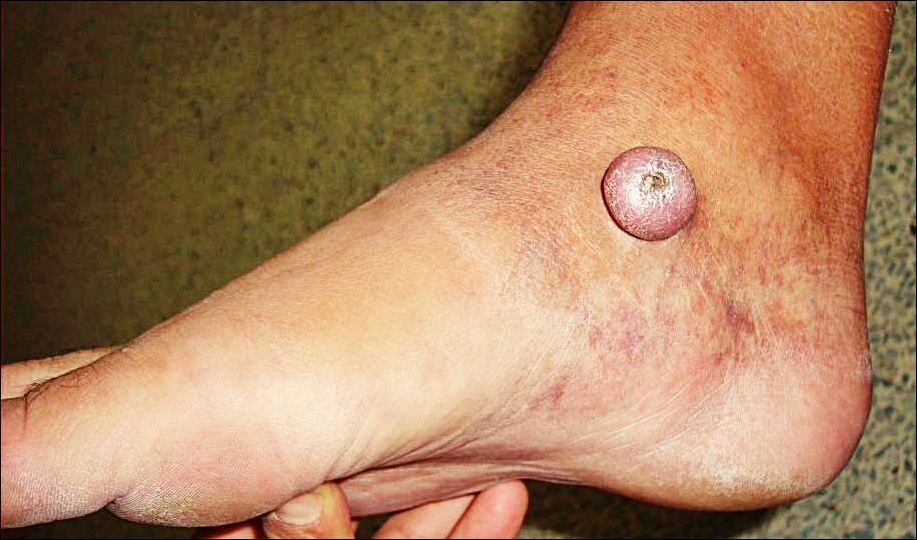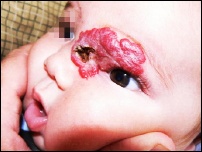| What is Skin Tumor? |
Skin tumors are abnormal growths of tissue that can be malignant or benign. Skin tumor become extremely common as people get older. This common form of tumor can also occur on areas of skin not ordinarily exposed to sunlight. Some common benign tumors include warts (skin tumor resulting from a virus), Seborrheic keratoses (growths on the skin ranging from light skin color to dark brown), and nevi (skin growths such as moles or birthmarks).
|
|
|
| How are skin tumor treated? |
Often, no treatment is required for skin tumors. There are several methods to treat skin tumors may include:
- Curettage and electrodesiccation
This involves scraping away the tumor tissue with a sharp surgical instrument called a curette. An electrosurgical unit may then be used to stop bleeding.
- Surgical excision
This involves cutting into the skin, removing the growth, and closing the wound with stitches.
- Cryosurgery
During this procedure, liquid nitrogen is sprayed directly onto the skin or an instrument is used to freeze the tissue.
| What is risk factor of skin tumor? |
Skin tumor is mainly caused by exposure to ultraviolet radiation (UVR) from the sun and other source such as solaria and sunlamps.
- Fair Skin
However, having less pigment (melanin) in skin provides less protection from damaging UV radiation. If people have blond or red hair and light-colored eyes, and freckle or sunburn easily it seem much more likely to develop skin tumor than is a person with darker skin.
- A history of sunburn
Having had one or more blistering sunburns as a child or teenager increases your risk of developing skin tumor as an adult. Sunburns in adulthood also are a risk factor.
- Excessive sun exposure
Anyone who spends considerable time in the sun may develop skin tumor, especially if the skin isn’t protected by sunscreen or clothing. Tanning, including exposure to tanning lamps and beds, also puts at risk. A tan is a skin’s injury response to excessive UV radiation.
- Sunny or high altitude climates
People who live in sunny, warm climates are exposed to more sunlight than are people who live in colder climates. Living at higher elevations, where the sunlight is strongest, also exposes to more radiation.
- Moles
People who have many moles or abnormal moles called dysplastic nevi are at increased risk of skin tumor. These abnormal moles which look irregular and are generally larger than normal moles are more likely than others to become cancerous. If you have a history of abnormal moles, watch them regularly for changes.
- A family history of skin tumor
If one of your parents or a sibling has had skin cancer, you may have an increased risk of the disease.
- A personal history of skin tumor
If people developed skin cancer once, they are possible the risk of developing tumor again.
- A weakened immune system
People with weakened immune systems have a greater risk of developing skin cancer. This includes people living with HIV/AIDS and those taking immunosuppressant drugs after an organ transplant.
- Exposure to radiation
People who received radiation treatment for skin conditions such as eczema and acne may have an increased risk of skin cancer, particularly basal cell carcinoma.
- Exposure to certain substances
Exposure to certain substances, such as arsenic, may increase the risk of skin cancer.
 |
Search for Best Treatment Skin Tumor in Google search here |


